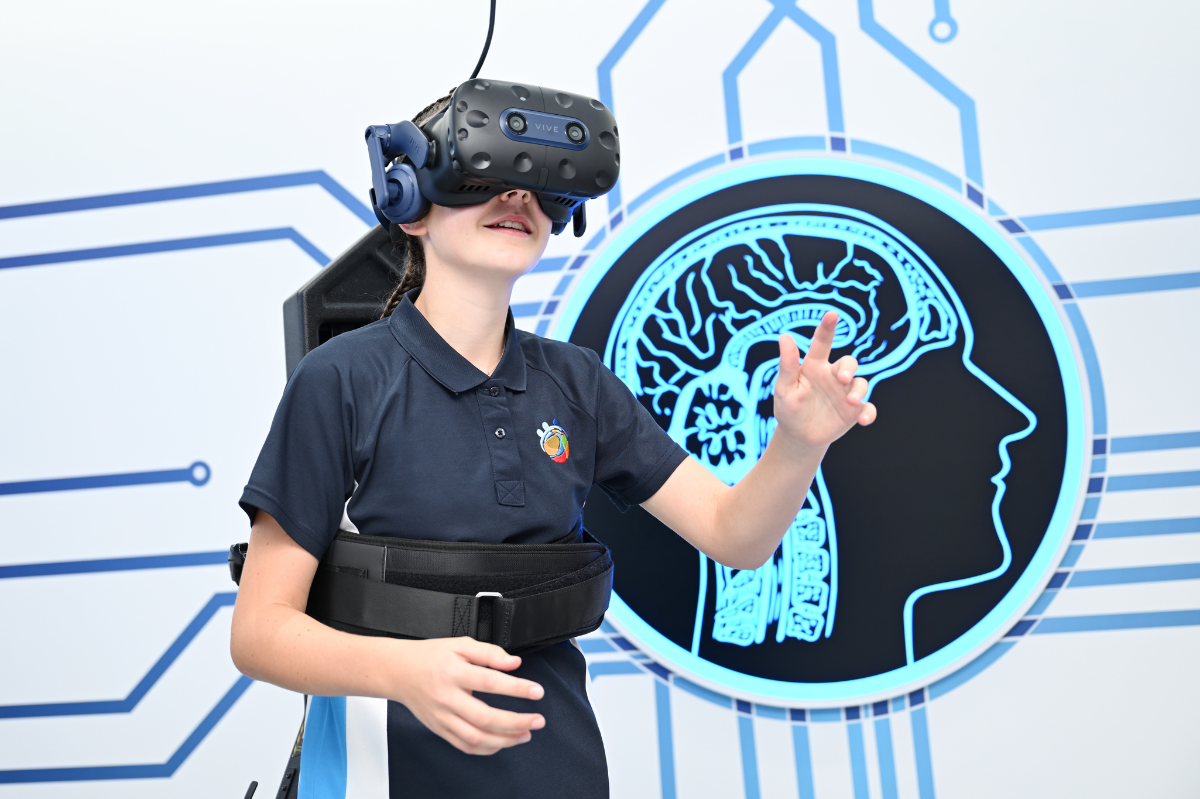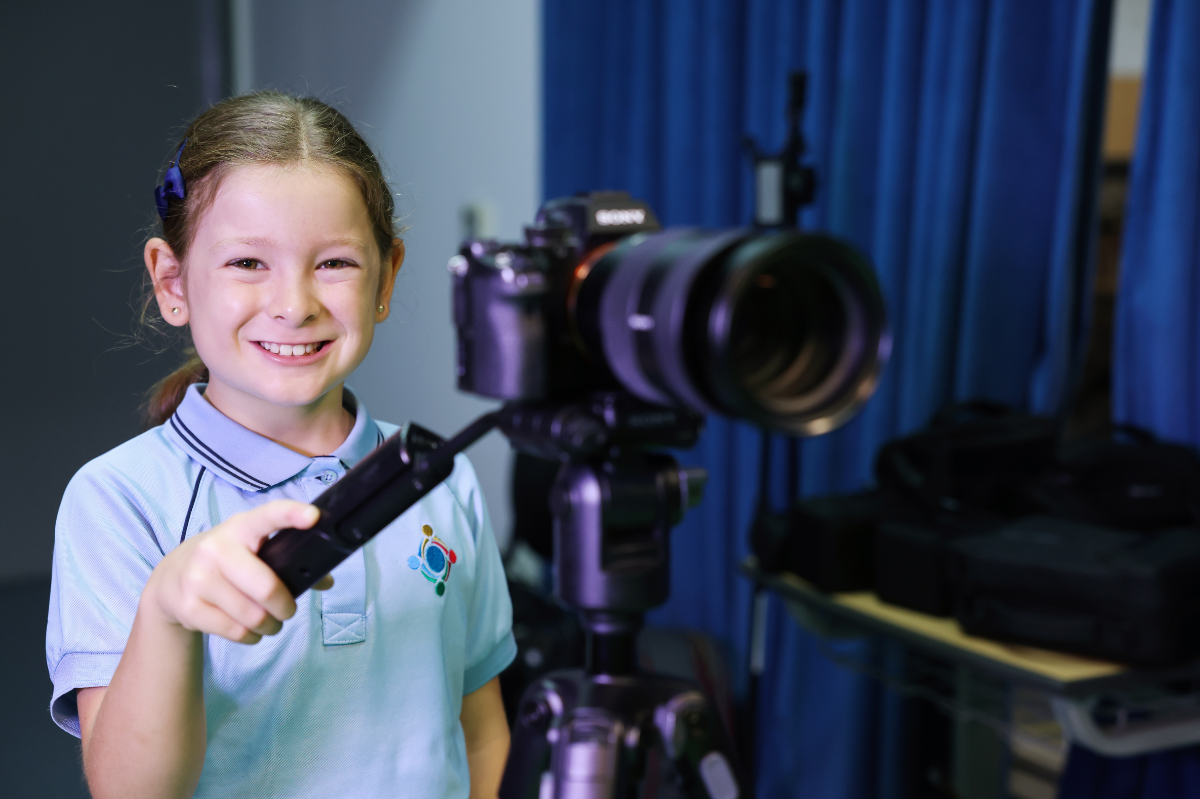The International Baccalaureate Curriculum offers two Post-16 programmes: the IB Diploma Programme (IBDP) and the IB Career-Related Programme (IBCP). Both correspond to Key Stage 5 (Years 12 and 13) of British curriculum schools and Grades 11 and 12 of American curriculum and Indian Curriculum schools.
The Post-16 phase is a critical part of any student’s life. It’s their preparation for life after school, and the decisions they make here directly affect their future.
This begs the question: Which is better for my child? IBDP or IBCP? You may also be wondering: Is IBCP equivalent to A-levels? Does IBCP get a diploma?
In this blog, we cover the highlights of IBDP and IBCP. We hope that, in this way, we can help you decide which IB pathway is best for your child.

IBDP and IBCP in Brief
The IB Diploma Programme is an academically rigorous two-year programme that prepares students for university. It focuses mainly on academic scholarship.
The IB Career-Related Programme is no less challenging than IBDP, but this two-year programme prepares students for the workplace. It focuses on career preparedness. It is worthwhile to note, however, that IBCP students can still attend university.
What differentiates IBDP from IBCP? The academic focus of IBDP differentiates it from the career focus of IBCP. This is apparent in the curriculum of the two IB programmes.
Here at GEMS, we believe in empowering our students with options that will help them choose the path to take towards their dreams. For our students who want a Post-16 programme that prepares them best for university, we offer IBDP. For our students who prefer a career-oriented Post-16 education, we offer IBCP.
The following GEMS schools offer IBDP:
*AKIS is launching IBDP in September 2025. It’s now taking enrolments for the programme.
These GEMS schools offer IBCP:
The IBDP Curriculum
The IBDP curriculum has two components. Your child must complete both to gain the IBDP qualification.
-
The Diploma Programme (DP) core
-
The DP courses
The DP Core
Three elements constitute the DP core. They are the following:
-
Theory of Knowledge: Your child must demonstrate their theoretical understanding of knowledge through an exhibition and a 1,600-word essay
-
Extended Essay: This is a 4,000-word research paper on your child’s preferred subject (e.g., stem cells)
-
Creativity, Activity, Service: This is a series of experiences and at least one project that demonstrates their creativity, provides a community benefit, and compels your child to engage in an activity that will accomplish a specific target
The DP Courses
In IBDP, your child will choose and study six DP courses for two years. These can come from up to six subject areas.
-
Language acquisition
-
Studies in language and literature
-
Individuals and societies
-
Sciences
-
Mathematics
-
The arts
When choosing DP courses, the rule of thumb is to select the courses that will improve your child’s chances of getting admitted to the degree programme and university they want to attend. The school’s guidance counsellor can provide insights and university-specific knowledge that will help your child choose courses wisely.

The IBCP Curriculum
The IBCP curriculum will make your child ready for their chosen career. It has three components.
-
DP courses
-
The Career-Related Programme (CP) core
-
Career-related studies
DP Courses
IBCP students must take at least two DP courses. They can choose from any of the six subject areas available to IBDP students.
At GEMS World Academy Dubai, English and mathematics are compulsory DP courses. Your child can choose another DP course from other subject areas.
IBCP students may register for up to four DP courses, but schools may have their own limits. Taking more than two DP courses is an excellent strategy if your child wants a career-centred education but still plans to earn a bachelor’s degree.
The CP Core
While the DP core develops competencies that can help your child succeed in university, the CP core develops practical skills that can help your child in the workplace. The CP core has four components.
-
Personal and professional skills: The personal and professional skills course teaches the attitudes, behaviours and skills valued in the workplace
-
Service learning: Service learning is a research project that underscores the importance of using knowledge and skills to benefit the community
-
Reflective project: The reflective project is a research and writing project. The output is a body of work that examines the ethical issues surrounding or arising from a career
-
Language development: This language course will develop your child’s functional proficiency in a language they don’t already speak
Career-Related Studies
In IBCP, your child can earn one or more career-focused qualifications. They can choose from the following career-related studies at GEMS International School Al Khail:
-
Business Level 3 International iBTEC
-
Creative Media Level 3 International iBTEC
-
Sport Level 3 International iBTEC
-
Embry Riddle Aeronautical University Dual Enrollment Programme pathways in:
-
Aeronautics and Aviation
-
Science, Technology, Engineering and Mathematics (STEM)
-
Business with Aeronautics and Aviation
-
Business with STEM
-
Note: iBTEC is the international version of Business and Technology Education Council (BTEC) qualifications.

Answers to Your Frequently Asked Questions About IBCP
Now that you have a general understanding of what IBDP and IBCP are, let’s answer the most frequently asked questions about IBCP.
1. Is IBCP equivalent to A-levels?
A higher-level DP course typically corresponds to an A-level subject. Additionally, any diploma earned through career-related studies may be equivalent to two or three A-levels.
Universities may standardise A-level and IBCP grades (including the grades for the DP courses and career-related studies). UK universities typically apply the Universities and College Admissions Service (UCAS) conversion system.
In this case, a D*D* from a career-related study gets 112 points. This is equivalent to two A*s at A-Levels and two 7s at a higher-level DP subject.
2. Does IBCP get a diploma?
Once your child completes the IBCP requirements, they will get an IBCP diploma or certification to prove they completed the programme. They will also leave school with a BTEC Level 3 or similar diploma.
3. What are the entry requirements for IBCP?
Entry requirements can vary from school to school and may depend on your child’s previous curriculum. For instance, some schools require at least five A-C in General Certificate of Secondary Education (GCSE) or international GCSE (iGCSE) courses. Two of these GCSE/iGCSEs may have to be in English and Maths. Meanwhile, if your child is coming from the IB Middle Years Programme (MYP), they may have to have a minimum score of 4 in every MYP subject and a 4+ in the MYP Personal Project.

IBDP vs IBCP: Which Is Better for my Child?
It can be difficult to choose which programme is better for your child: IBDP or IBCP? Ultimately, it depends on what your child’s goal is. IBDP has some advantages over IBCP if your child is determined to go to university and earn a bachelor’s degree in their preferred field of study after their Post-16 studies. However, IBCP students can still attend university.
IBCP has an advantage over IBDP if your child is vocationally focused, or has a clear idea on the career they want to pursue. They may or may not plan to go to university, but in the meantime, they want to earn career qualifications they can build on later.
We offer world-class IBDP and IBCP education through our network of GEMS IB schools in Dubai and Abu Dhabi. Our IB students consistently score high in internal and external assessments and record excellent university acceptance rates. Get in touch with us today to learn about the GEMS schools in the UAE that offer the IB curriculum.
More Popular Blogs
-
Read More
-
Can you do IB after CBSE? Here are important things you need to know if you plan to transfer your child from a CBSE to an IB curriculum school.Read More
-
What are the benefits of taking the IB Diploma Programme? Learn about what the IB diploma is here and how it can boost your university applications.Read More








